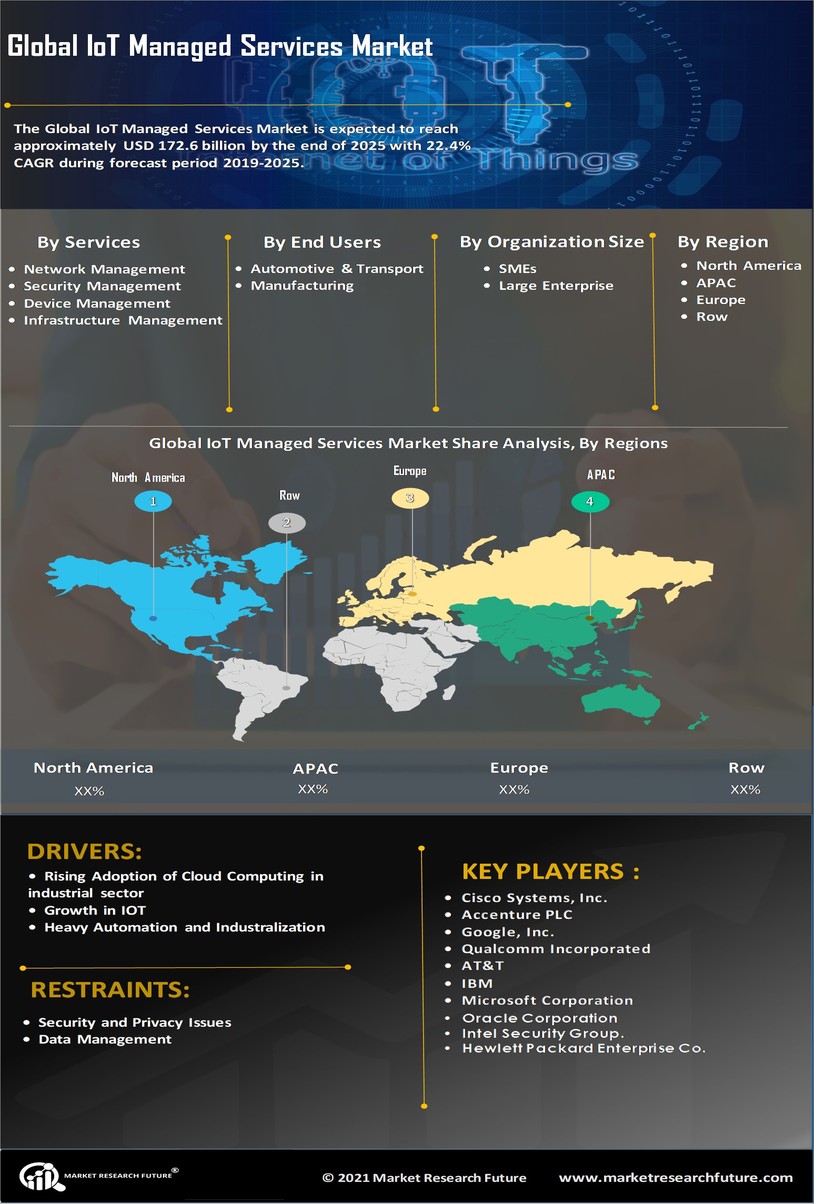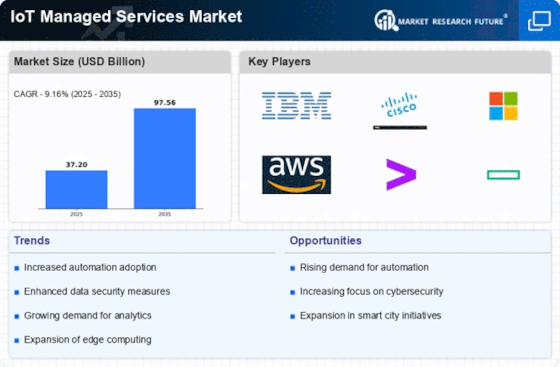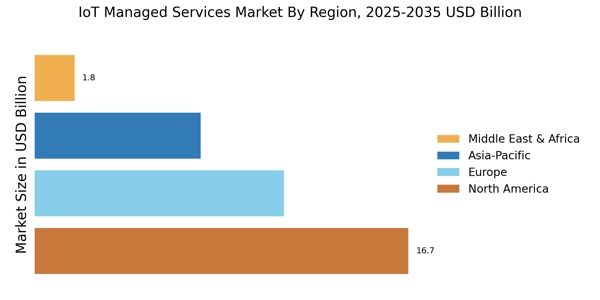Need for Enhanced Data Analytics
Data analytics plays a crucial role in the IoT Managed Services Market, as organizations strive to derive actionable insights from the vast amounts of data generated by connected devices. The ability to analyze this data effectively can lead to improved decision-making, operational efficiency, and customer satisfaction. As businesses increasingly rely on data-driven strategies, the demand for managed services that offer advanced analytics capabilities is likely to rise. Market Research Future indicates that The IoT Managed Services Market is anticipated to reach USD 274 billion by 2022, highlighting the growing importance of data analytics in the IoT ecosystem. Managed service providers that can deliver sophisticated analytics solutions will be well-positioned to capture a significant share of the IoT managed services market.
Rising Demand for Connected Devices
The proliferation of connected devices is a primary driver for the IoT Managed Services Market. As more devices become interconnected, the need for effective management and monitoring solutions intensifies. According to recent estimates, the number of connected devices is projected to reach over 30 billion by 2030. This surge necessitates robust managed services to ensure seamless operation, security, and data management. Organizations are increasingly recognizing the value of outsourcing these services to specialized providers, which allows them to focus on core business activities while leveraging advanced technologies. Consequently, the demand for IoT managed services is expected to grow, as businesses seek to optimize their operations and enhance customer experiences through connected solutions.
Increased Focus on Operational Efficiency
Operational efficiency remains a key driver in the IoT Managed Services Market, as organizations seek to streamline processes and reduce costs. The integration of IoT solutions allows businesses to monitor and optimize their operations in real-time, leading to enhanced productivity and resource utilization. Managed services play a vital role in this context, providing the expertise and tools necessary to implement and maintain IoT systems effectively. Research indicates that companies that adopt IoT solutions can achieve up to a 30% reduction in operational costs. As organizations continue to prioritize efficiency and cost-effectiveness, the demand for IoT managed services is expected to grow, as these services enable businesses to harness the full potential of their IoT investments.
Advancements in Cloud Computing Technologies
The rapid advancements in cloud computing technologies are significantly influencing the IoT Managed Services Market. Cloud platforms provide the necessary infrastructure for managing and analyzing the vast amounts of data generated by IoT devices. The scalability, flexibility, and cost-effectiveness of cloud solutions enable organizations to deploy IoT applications more efficiently. According to industry reports, the cloud computing market is expected to grow to USD 832 billion by 2025, indicating a robust trend towards cloud adoption. As businesses increasingly migrate their operations to the cloud, the demand for managed services that can facilitate this transition and optimize cloud-based IoT solutions is likely to rise, further propelling the growth of the IoT managed services market.
Growing Emphasis on Compliance and Regulatory Standards
Compliance with regulatory standards is becoming increasingly critical for organizations operating within the IoT Managed Services Market. As governments and regulatory bodies implement stricter data protection and privacy laws, businesses must ensure that their IoT solutions adhere to these regulations. This compliance requirement drives the demand for managed services that can provide the necessary expertise and resources to navigate complex regulatory landscapes. For instance, the General Data Protection Regulation (GDPR) has set a high standard for data privacy in Europe, influencing organizations worldwide. As a result, managed service providers that offer compliance-focused solutions are likely to see increased demand, as businesses seek to mitigate risks associated with non-compliance.

















